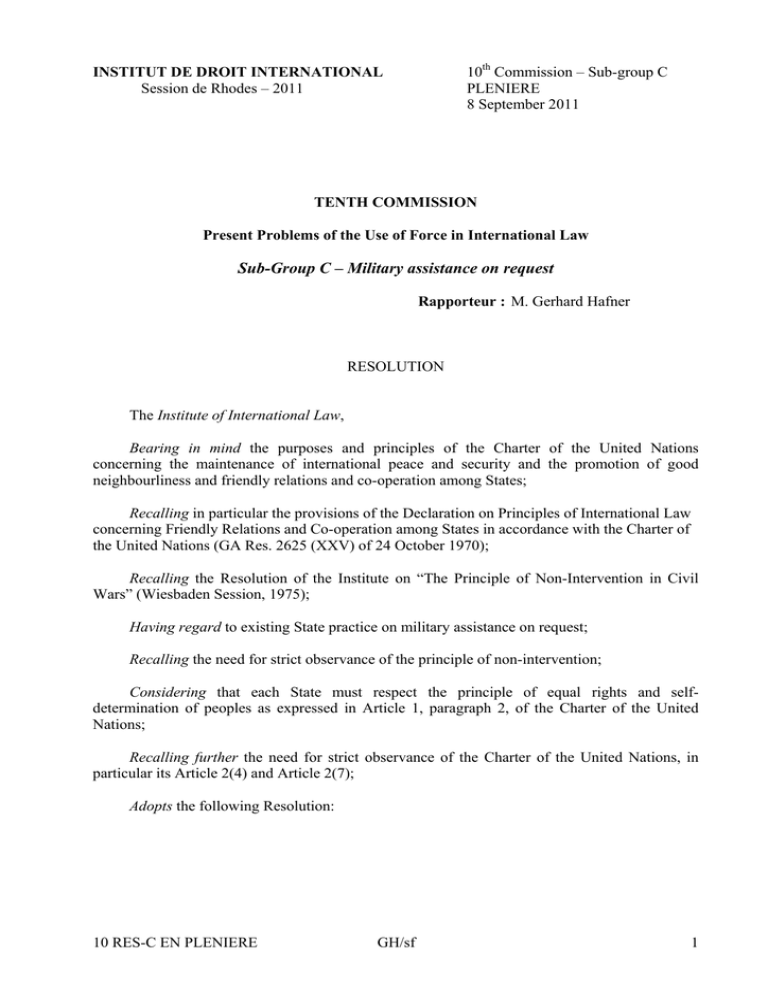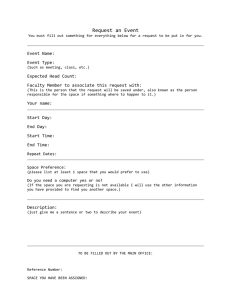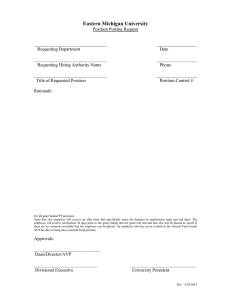Sub-Group C – Military assistance on request
advertisement

10th Commission – Sub-group C PLENIERE 8 September 2011 INSTITUT DE DROIT INTERNATIONAL Session de Rhodes – 2011 TENTH COMMISSION Present Problems of the Use of Force in International Law Sub-Group C – Military assistance on request Rapporteur : M. Gerhard Hafner RESOLUTION The Institute of International Law, Bearing in mind the purposes and principles of the Charter of the United Nations concerning the maintenance of international peace and security and the promotion of good neighbourliness and friendly relations and co-operation among States; Recalling in particular the provisions of the Declaration on Principles of International Law concerning Friendly Relations and Co-operation among States in accordance with the Charter of the United Nations (GA Res. 2625 (XXV) of 24 October 1970); Recalling the Resolution of the Institute on “The Principle of Non-Intervention in Civil Wars” (Wiesbaden Session, 1975); Having regard to existing State practice on military assistance on request; Recalling the need for strict observance of the principle of non-intervention; Considering that each State must respect the principle of equal rights and selfdetermination of peoples as expressed in Article 1, paragraph 2, of the Charter of the United Nations; Recalling further the need for strict observance of the Charter of the United Nations, in particular its Article 2(4) and Article 2(7); Adopts the following Resolution: 10 RES-C EN PLENIERE GH/sf 1 10th Commission – Sub-Group C PLENIERE 8 September 2011 Article 1 Definitions For the purposes of this Resolution: a) “Military assistance on request” means direct military assistance by the sending of armed forces by one State to another State upon the latter’s request. b) “Request” means a request reflecting the free expression of will of the requesting State and its consent to the terms and modalities of the military assistance. Article 2 Scope 1. This Resolution applies to situations of internal disturbances and tensions, such as riots, isolated and sporadic acts of violence and other acts of a similar nature, including acts of terrorism, below the threshold of non-international armed conflict in the sense of Article 1 of Protocol II Additional to the Geneva Conventions relating to the Protection of Victims of NonInternational Armed Conflicts of 1977. 2. The objective of military assistance is to assist the requesting State in its struggle against non-State actors or individual persons within its territory, with full respect for human rights and fundamental freedoms. Article 3 Prohibition of military assistance 1. Military assistance is prohibited when it is exercised in violation of the Charter of the United Nations, of the principles of non-intervention, of equal rights and self-determination of peoples and generally accepted standards of human rights and in particular when its object is to support an established government against its own population. 2. Military assistance shall not be provided where such provision would be inconsistent with a Security Council resolution relating to the specific situation, adopted under Chapter VII of the Charter of the United Nations. 10 RES-C EN PLENIERE GH/sf 2 10th Commission – Sub-Group C PLENIERE 8 September 2011 Article 4 Request 1. Military assistance may only be provided upon the request of the requesting State. 2. The request shall be valid, specific and in conformity with the international obligations of the requesting State. 3. If military assistance is based on a treaty, an ad hoc request is required for the specific case. 4. Any request that is followed by military assistance shall be notified to the SecretaryGeneral of the United Nations. Article 5 Withdrawal The requesting State is free to terminate its request or to withdraw its consent to the provision of military assistance at any time, irrespective of the expression of consent through a treaty. Article 6 Other limits on the provision of military assistance 1. Military assistance shall be carried out in conformity with the terms and modalities of the request. 2. Military assistance shall not be provided beyond the time agreed to by the requesting State, without further agreement thereon. 3. Military assistance shall not constitute a coercive measure in order to obtain from a State the subordination of the exercise of its sovereign rights. Article 7 Additional obligation of the requesting State Military assistance shall not be used by the requesting State to circumvent its international obligations. ________ 10 RES-C EN PLENIERE GH/sf 3


